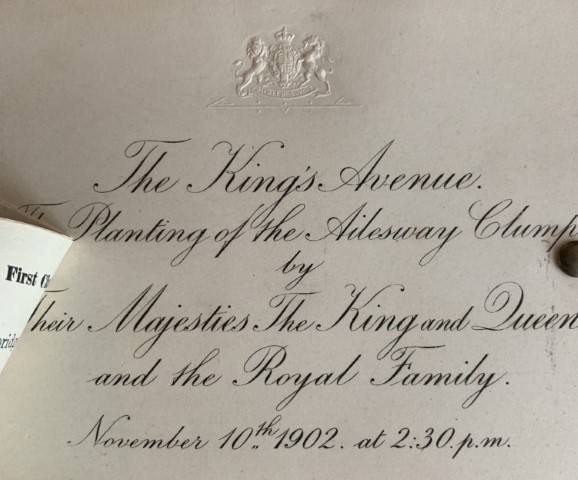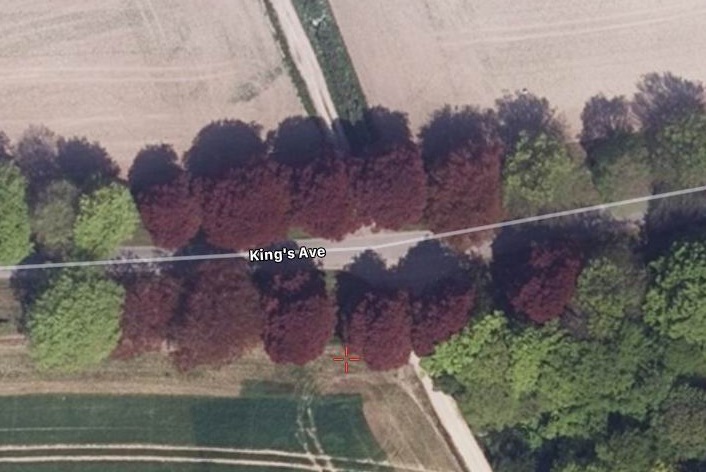"This ancient town, which, by virtue of its narrow streets and interesting architecture, lends itself very well to the purposes of decoration, celebrated the King's birthday gaily this morning. Fags were shown plentifully in the streets and there was much ringing of bells. The day, too, which was not without its interesting little ceremonies, was as perfectly enjoyable as it is possible for a November day to be. It was cloudless and windless, and the late autumnal tints of the foliage remaining on the trees were delight. The Emperor has spent his first weekday in Norfolk during this visit in absolutely perfect conditions.
With regard to the lines which follow, I desire to be perfectly candid. The Emperor's visit is the private one of a nephew to an uncle, mainly for the purposes of sport. It is quite clearly not the right of a correspondent to be present while shooting is in progress, and it is, I venture to say, in a spirit which many landowners would do well to imitate that the King does not encourage the publication of details as to the bags obtained on the Sandringham estate. It is always good shooting, and it is quite enough to be informed that the Emperor and the Prince of Wales went to Wolferton Marsh by motor-car this morning; that they thoroughly enjoyed a good morning's shooting among the wild duck, and that they returned to Sandringham in time for luncheon. Wild duck are not indeed cherished at Sandringham as they are at some places. Nethetherby for example, but the marshes, which had not been disturbed this season, afforded plenty of sport. The events of the afternoon, however, were of a semi-public character, and it must be confessed that, while there can hardly have been any strong reason for prohibiting the presence of accredited representatives of the Press, it would have been more satisfactory to be able to describe them at first hand. Since that is impossible, it becomes necessary to record, first, exactly that which as to be seen and heard, and then to fall back on official hearsay.
The first event of the afternoon was to be the planting by various members of the Royal Family, including the Kaiser, of a number of purple beeches at a spot known as the Coronation Oval in the centre of a new avenue. This avenue, which is of sycamores, with a hedge of privet behind it on either side, fringes the ancient "ailesway", said to be British and to mean "the eagle's way"; but since aquila is Latin and the ancient British had no roads to speak of, and their name for the eagle was quite different in sound, it may be assumed that the road is Roman in origin. In future it will be known as the "King and Queen's Avenue," in this part at any rate, and it connects the Sandringham estate with the recently acquired estate of Anmer. The avenue has been presented by the tenants and labourers of the Sandringham estate, and it was interesting to see them flocking down to the scene of the plantation, and to watch the greetings which passed between them and the various members of the Royal Family as they drove from Sandringham to the appointed spot this afternoon. First came the Prince of Wales in a motor-car with his children, then some of the suite, then the King, the Emperor, the Queen, and Princess Victoria in a carriage drawn by a pair of greys, and, last of all, Prince and Princess Charles of Denmark in a dog-cart, Prince Charles driving. But it must be confessed that it was a little disappointing to be stopped by policemen nearly half a mile from the appointed spot while villagers went through freely, and to be able to see nothing except a stubble field and a haystack and a cluster of people in the distance. This fact is mentioned, not in complaint, but in the assured conviction that the police had misunderstood their orders and that nothing of the kind was intended.
It was gathered afterwards that 14 trees were planted by the hands of the King, the Kaiser, the Queen, the Prince of Wales, Princess Victoria, Prince and Princess Charles of Denmark, Princes Edward, Albert, and Henry and Princess Victoria Mary of Wales, and that the personages whom they commemorate, whose trees they are, so to speak, were, in addition to those already mentioned, the Princess of Wales, Princess Louise, and the Duke of Fife. It was also gathered that an address, in which gratitude for the King's recovery was expressed, was presented to the King by Mr. E. Betts, an old tenant of the estate, the King replying that he had never felt better in his life and that he should never lose his interest in Sandringham and Norfolk. The Royal and Imperial party then drove away amidst the greetings of two crowds, the privileged and the unprivileged, to a tent in the park, where dinner direct from the Sandringham kitchens was provided for all the employees of the estate. Their reception was certainly of the most cordial kind, for the cheers were heard a mile away. There it was ascertained that the Kings health was drunk, and that in reply he thanked the donors of the avenue, and, alluding to the Kaiser, proposed his health, which was drunk enthusiastically. The Kaiser made no speech in reply but acknowledged by gesture the welcome given to him. Here, again, it would have been convenient to be able to give something more vivid than a hearsay report, and there seems to be no particular reason why facilities should not have been given.
To-day the house party has been changed considerably. Lord and Lady Roberts, Mr. Balfour, Mr. and Mrs. Chamberlain, Mr. Brodrick, and the Bishop of Ripon left early, and the guests at Sandringham now include Lord and Lady Lansdowne, Lord and Lady Londonderry, Lord and Lady Ormonde, Lady Constance Butler, and Sir Donald Mackenzie Wallace, in addition to those named in The Times of to-day. Herr Gottlieb's band performs to-night as usual, and I gather unofficially that Herr Rubelik's playing in the small drawing-room was very highly appreciated last night. Amongst the entertainments of a quiet week will be, I learn officially, a conjurer and theatricals, for which, of course, there are ample facilities at Sandringham. Unofficially I gather that the "theatricals" will involve the presence of Sir Henry Irving in A Story of Waterloo, a piece admirably suited in every way. It will appeal to the military tastes of the Kaiser. It is emphatically a one-man play calling for little apparatus, and it displays Sir Henry Irving's brilliant talents to great advantage."




